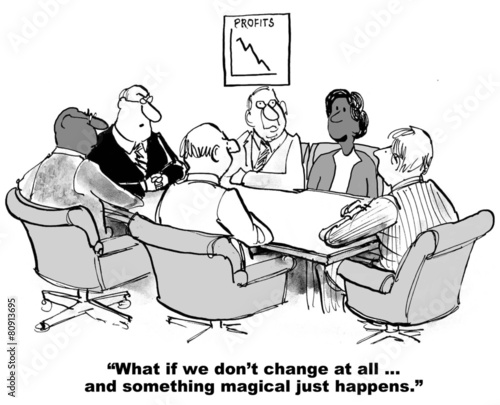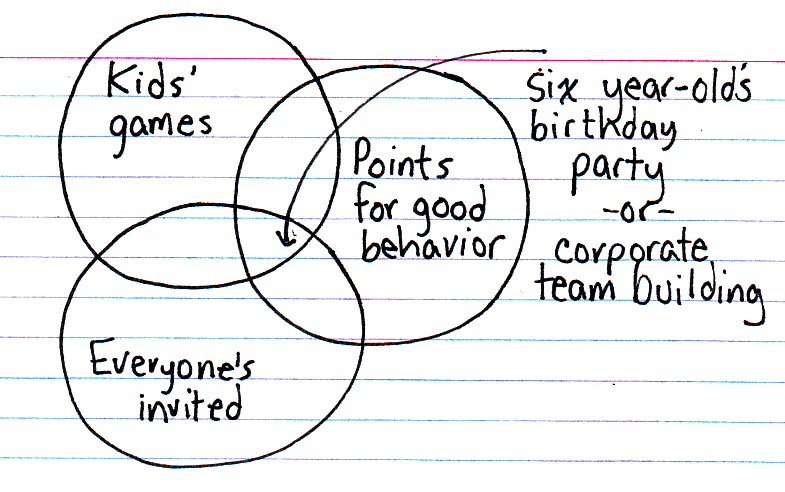Have you ever seen the movie Hangover? Now that's how some people would love to feel at work, full of actions, that might lead to not remembering anything after a day or week, but you love every bit of it. You have loads of fun with tough and easy scenes, and make your staff feel that yes, they did it, they can sort it out! Ensure that everything works out well and at the very end of a project you provide them the opportunity to look back and get shocked or piss themselves off from laughing but certainly and most importantly: LEARN THE LESSON FROM ALL WHAT THEY DID IN A CONSTRUCTIVE WAY. Can you do this? I believe yes, but if you read this article it's more likely you haven't done it yet ;).
The title is a well known question with so so many answers and point of views that a week discussing it full time wouldn't be enough for this topic.
But let's just keep it short and simple.
What do we understand under motivation? Well, guess what, I am not going to use a dictionary, instead I would like to describe it in a way, that hopefully will hit the nail on the head.
Let's compare staff motivation at work with learning a new language in school. In both cases the aim is to achieve something great (either by doing your job in a way that satisfies you and you perform on a very high level, or speaking the language fluently for example) by doing processes that are versatile, fun to do and changing, though perhaps they teach/ show you the same way that you knew already but a bit spiced up, and most importantly always filled with new information.
One thing that needs to be cleared people are the same, but still different. In jobs and their lives as well they want to be appreciated, respected and acknowledged for what they did and they do, but still they all view and live it from different perspectives. If you don't meet these criterias, you perhaps own a crowd of zombies hunger for money or just simple people who have nothing else to do than just hang around and well let's face it, this isn't your aim (ok money too at the end, but after hard and good work that will come too).
You want people who work for/ with you to improve not just their own lives (1st standpoint for them) but others' too by selling products or services that promote a state of well being or a state of belonging somewhere good. (E.g.: owing an Apple phone. The person who sold me seemed to love his job. The product I've bought, made me feel cool, because I could afford it, plus he made me feel good by owing something that is maybe unnecessary in my life but still can afford it and the thought seems waoo :)) )
Let's say you have a shop selling first class rugs for every home or institution. You are a well known company and well if I need rugs, I certainly will go to you to buy them because you have great reviews. You are good not just because you offer something good and well known but also because your products are high standard (last long, keep their colors longer, pattern design is mind blowing), you can fit orders to personal needs and provide the best customer service all the way through, for a price that covers not just your cost, but also brings a nice sum of profit (this is your secret). You say you are a small company and can't afford this? Look at your employees I bet they can ( when it comes to action, really good colleagues/ employees achieve even the impossible, but only IF YOU DESERVE IT).
Rule No. 1: BELIEVE THAT YOUR STAFF CAN DO IT and act accordingly!
If you don't have the faith in your staff that they can do the job, better don't waste your time hiring anyone and don't ask others either to bother with it. Why? Because you will screw it up. Yes, sounds harsh, doesn't it? It is just reality. On a long run if you don't believe in your staff you will always complain, worry about their mistakes, problems, that perhaps might be minor ones, but still you will just make them appear major, too too much...
Provide necessary tools, authority (responsibility) and be there if needed. If not following can happen, easily: your 5* employees will actually believe they are bad and start to perform that way, or they'll just leave the job asap and you'll find it out in the last moment. And tataaaam, you'll be like: "What?? Why? Nooo!". Then one day after the other your company stops growing, starts stagnating or worst case it will start declining. This is such a well known scenario for so many companies and yet... they still don't get it.
Rule No. 2: TIME IS MONEY, for your staff as well!
Sounds familiar? People who have faith say "God pay you back" for every good deed, but there is an other say: "Help upon yourself, and God will help you too!". If I see that people just always thank for me working my ass off, to bring the company alive and progress, but I get only "Thanks" and "Good job", plus nothing worthy actually happens or in worst scenario my colleague/ boss takes the merit for something they have nothing to do with, sooner or later (and I bet sooner after such a case) I'll just move on and start new somewhere else. So take that cheque out and be reasonable, or promote the person (oh and lets just start there that overtimes should be paid!) You don't have to pay a fortune, because at the end of the day you aren't a millionaire (or who knows), specially if you just started up. Believe me, using out someone to get the job done (?)... well... it will cost you one way or the other, so think of it what price you want to pay for it? People with brain and dignity won't ask for your money they will just tell everyone how rubbish you are and won't care if your establishment floats or worst case drowns...
Rule No. 3: ASK FOR THINGS THAT ARE ACHIEVABLE, by you too!
Whether you are the head of HR/any department or simple the owner who has just a small company, don't ask your staff to make you millionaire by tomorrow. That won't happen! The same way as you hired someone to sort something out, the same way you should understand that you have humans on board (even if sometimes they act like animals :D) with limits! If you are a start up because of limited resources sometimes you must hire people to sort out more than one thing, which is fine, but if you give someone to deal with 10 things, without the necessary tools and authority, well that's not fine.
Nothing can be more demotivating than working on more than 3 things at the time with the same priority and hearing constantly why is this or that not done yet? Be realistic and fair enough, to understand, things need to be planed in advance, and everything has to be sorted accordingly. In case things don't go fast, roll your sleeves up and jump in, you'll have time later to find out why someone wasn't performing, after the job is done and deadlines or project targets met. Show your staff that they can count on you and don't tell them to do something that you actually don't have time to focus on or don't care about.
Rule No. 4: TEACH AND LEARN (Learning & Development for the faint hearted), no matter what!
I love
people who love to teach, but also who are happy to learn too.
Throughout my career in non/commercial fields I've met loads loads of
people and frankly I've enjoyed the most working with those who were
ready to learn and not stubborn to ask for help or even the ones, who
were so professional and good they taught me new skills without the unnecessary "OMG, how is that you don't know this?". A person -
no matter for how long s/he is at a company, or in a specific role -
will/ should always learn something new, progress and develop as a professional in order to keep up with the
trends on the market and by targeting the best spot on it, customize
offers accordingly and get the most out of everything. Here one thing to
add: TECHNOLOGY, keep up with that too, it can save enormous time and
money on a long run, in your HR department as well.
Rule No. 5: Don't dream, instead understand the reality of human needs @ work!
What most companies spit themselves in their own face with and the people who they get on board as well (this is btw. the worst joke of the 21st century) is the way how they are looking for the right candidate/ company. Good caliber people always want challenges, to constantly learn/ improve/ develop and have fun in their jobs too. Now what happens most of the cases? Well your company wants the best as always, but frankly you are lying of how many things you can offer, and why you actually are worth every breath... To this comes the cherry on the cake: clever candidates will do everything to get the best jobs, yes... even to lie in their CVs or give you fake references. I guess this isn't shocking to anyone, but this can be: How many of your employees whom you've hired until now, have told you the truth?
If after 6 months you or even your employee realize/s that this isn't working, move on. Be professional, it is hard to digest that you weren't meant for each other but hey, it is not the end of the world. Yes, yes, but are you asking what about the money you invested in that person? Ok. But what about the time the person invested in your company? And what about the facts that it turned out that your offers you promised at the very beginning didn't even happen, or perhaps more than half of it were just lies? Hmm.. Tough case but you just be calm, carry on and stop dreaming and instead start acting, don't even try to take your revenge on your staff because that is stupid and childish to do! If you have a great company people won't turn their backs on you, unless they are spies or from personal reasons they want to screw you over. And the money you invest in someone to train? Hmm... It wasn't that much and job was done too otherwise you wouldn't kept that person for such a long time (yes, 6 months is a long time, specially if that job/ company isn't meant).
No one wants to sit in one position or even at a company till the end of his/ her live! OMG. Yes, no one (this is humans' nature, they love changes even after 20 years).
Look around you. People who are in an age that you prefer no to hire (this is discrimination just to remind you again) might be the best options to keep for the long run. "Very young" (under 25) ones can learn quickly and adapt fast, plus you can mold them with persistence. "Older" (over 40) generation can have priceless knowledge and wisdom. What about the people in-between? They are clever, cleverer than you'd think... Here, the only thing I'd like to add, plan ahead and be realistic.
Golden rule: no matter what people say, your employees are humans too, so treat them in a way you want to be treated!
Relax and let your employees enjoy their time too - even if it is once a year at a big company gathering, either on a nice fancy party or at a healthy dinner (don't ever try to take them to McDonald's or do a BBQ in your garage, frying frozen chips with chicken nuggets just to keep the costs low - better organize potlucks!)
ALWAYS THINK ON THE LONG RUN and TRY TO WALK IN YOUR EMPLOYEES SHOES FOR A BIT (OR VICE VERSA) if you want to be successful with them.
Hope these tiny rules were easy to digest and will bring you clarity to you too, but most importantly show you that you don't have to get out of your way to get the best on board. Who knows, you might already have them, just look around you.






.jpg)




